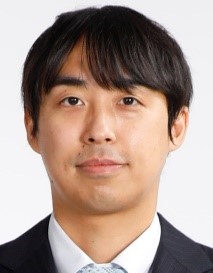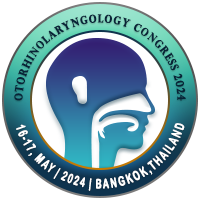
Yuzuru Ninoyu
Kyoto Prefectural University of Medicine, JapanTitle: Cochlear Macrophage Heterogeneity in Cisplatin-Induced Hearing Loss
Abstract
Prior, the inner ear was thought to be an immune-free organ because of the blood-labyrinth barrier, however, recent studies have shown the existence of cochlear immune cells and revealed a crucial role for cochlear homeostasis. The Macrophage, a major innate immune cell in the cochlea, is an important driver of inflammatory and tissue repair. Previous studies reported that the macrophage reacts to cochlea insult, such as noise and ototoxic drugs, suggesting that macrophage?may directly or indirectly contribute to cochlear dysfunction. However, little is known about precise macrophage character in spatiotemporal context which would be essential for better understanding of physiological and pathological role of the macrophage in the cochlea.?To define macrophage functional property, dualistic classification, such as M1 versus M2, have been commonly used for nomenclature and categories. However, recent studies argue that the categorization is not sufficient to explain the complexity of an immune-cell character that dynamically changes in tissue context, and multidimensional analysis is recommended to describe it. To address above, we modified chromogenic multiplex immunohistochemistry and image cytometry techniques emerging among the cancer research field, feasible for quantitative assessment of immune-cell heterogeneity with robust spatial information. We utilized the technique for investigating changing aspects of macrophage properties with cisplatin exposure, and revealed macrophage plasticity and diversity beyond the conventional two axis. Interestingly, the immunomodulation caused by cisplatin is associated with temporary hearing threshold shift. Our findings give new insights of the cochlear macrophage homeostatic function and of ototoxicity mechanisms from an immunological aspect.
Biography
Yuzuru Ninoyu, MD, PhD, is a board-certified otolaryngologist, a subspecialist in otology and audiology. He has completed his PhD at Kyoto Prefectural University of Medicine (KPUM), Japan, where he studied a molecular mechanism of a type of hereditary hearing loss, DFNA1. He won the 2017 Young-Investigator Award of Japan pharmacological society for research excellence and innovation. After becoming the assistant professor at KPUM in 2019, he joined the laboratories of Drs Rick A Friedman MD PhD and Uri Manor PhD at the University of California, San Diego and at the Salk biological institute as a postdoctoral research fellow from 2021. His research expertise is in a wide variety of imaging modalities with a current focus on spatial transcriptomics on the cochlea. He will be back at KPUM from 2023 and will also be the director of otolaryngology at Okamoto memorial hospital, Kyoto, Japan.

